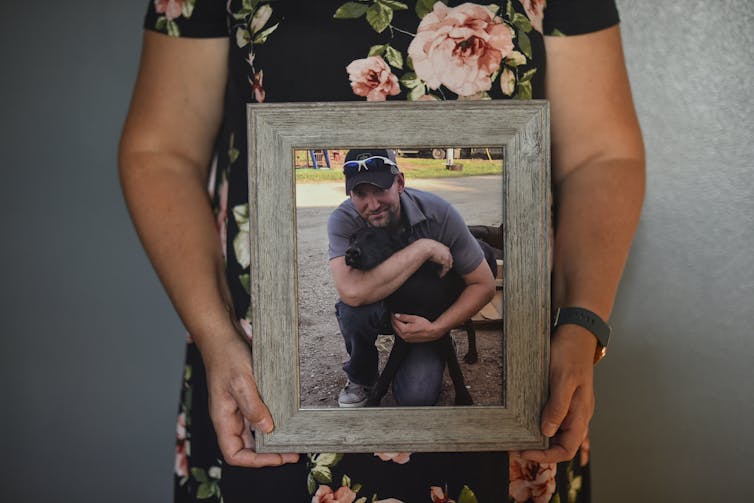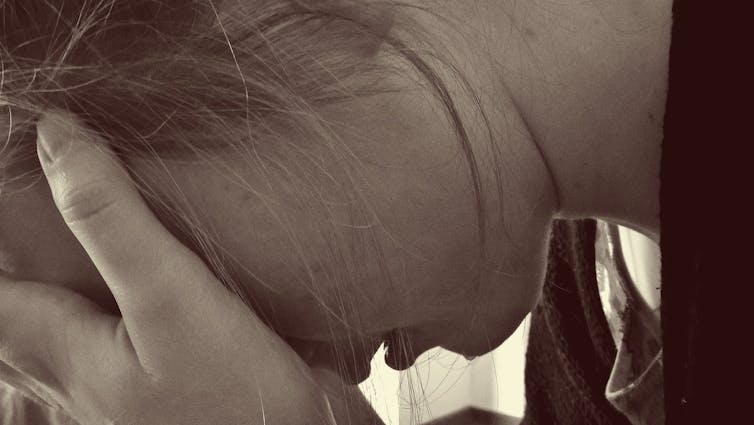
The U.S. #suicide rate has been increasing for decades. In 1999, the rate was about 10 suicides per 100,000 people. In 2017, the most recent year for which complete statistics are available, it was just over 14 per 100,000 – a rise of 40% in only 18 years.
And the problem is not evenly distributed across the country. The increase has been especially severe in rural areas, some of which have seen their #suicide rates jump by over 30% in just the past decade.
That rates can change from one decade to another, and vary so much across regions, suggests that #suicide is shaped by social conditions.
Perhaps the most obvious of these is access to #mentalhealthservices – psychiatrists, therapists and prescription antidepressants. Indeed, the most conventional way of talking about #suicide in the modern world is in terms of #mentalhealth.
This view is not incorrect: Clinical #depression increases the risk of #suicide, and so therapies that treat #depression can help prevent it. But as a sociologist who studies #suicide, I think the medical model of #suicide is incomplete. My research shows there are additional causes.
#JamesDonaldson notes:
Welcome to the “next chapter” of my life… being a voice and an advocate for #mentalhealthawarenessandsuicideprevention, especially pertaining to our younger generation of students and student-athletes.
Getting men to speak up and reach out for help and assistance is one of my passions. Us men need to not suffer in silence or drown our sorrows in alcohol, hang out at bars and strip joints, or get involved with drug use.
Having gone through a recent bout of #depression and #suicidalthoughts myself, I realize now, that I can make a huge difference in the lives of so many by sharing my story, and by sharing various resources I come across as I work in this space. #http://bit.ly/JamesMentalHealthArticle
#Suicide in response to an event
Not all who kill themselves do so after a long struggle with #depression – from Cato to Hitler, many famous figures of history have taken their own lives after sudden reversals, such as military defeats.
Those who already suffer #depression can be pushed over the edge by “the slings and arrows of outrageous fortune.” It is likely no coincidence that poet Sylvia Plath, with her long history of #depression, killed herself shortly after being abandoned by her husband. The human mind does not exist in a vacuum.
Thanks to the current #pandemic, the #NationalSuicidePreventionHotline is reporting a nine-fold increase in calls compared to this time last year.
Financial causes
Loss of material wealth – reduced income, mounting debts and other financial disasters – can certainly provoke #suicide. Numerous studies document that the unemployed have higher #suicide rates than the employed. Others show that rates rise during economic downturns.
#Suicide rates spiked during the #GreatDepression of the 1930s and were more prevalent in areas where banks folded, taking their customers’ savings with them.
#Suicide rates – in the U.S. and many other countries – also rose during the #GreatRecession of 2008. Some argue, in many parts of the U.S., the recession never ended, which may help explain the rise in rural #suicide.

South Dakota farmer Chris Dykshorn texted, “I seriously don’t know how we r gonna make it. I am failing and feel like I’m gonna lose everything I’ve worked for,” before killing himself in 2019. His case is hardly unique.
Along with high rates of #suicide go high rates of drug overdose. It’s sometimes hard to distinguish an intentional overdose from an accidental one, and some researchers lump them together as “deaths of despair.”
Shame
Reputation and good name are extremely important to most people, so all manner of shame and humiliation can cause #suicide. For instance, in South Korea, a former president killed himself after a corruption investigation in 2009. In 2017, a Kentucky state legislator killed himself after allegations of sexual misconduct.
Gossip and scandal are powerful sanctions in small towns and villages. The growth of #socialmedia has made people vulnerable to public shaming on a mass scale. Not surprisingly, #socialmedia shaming also provokes #suicide.

Broken relationships
In addition to the loss of stature, people also might kill themselves over the loss of social ties. Sociologists have known for over a century that people with more and stronger social connections have lower rates of #suicide. Marriage, parenthood and other sources of social integration provide a protective effect.
#Suicide victims are more likely than others to live alone, tend to have fewer friends and are less involved in organizations. America’s long-term decline in civic and religious organizations – or even voluntary groups such as bowling leagues – likely exacerbates other issues that might encourage #suicide.
If lacking social ties is bad, the sudden shock of losing them is worse. Breakups and divorces are a common reason for #suicide: One study of over 400,000 #Americans found that being divorced more than doubled the risk of #suicide. The same is true in other countries, and the risk is greatest immediately after the loss.
Strife
People also kill themselves in reaction to social conflict. Depending on the nature of the conflict, #suicide might be a kind of protest, punishment or escape.
Hundreds of Tibetans, for instance, have burned themselves in protest of Chinese rule.
In places such as rural Iran and Afghanistan, large numbers of #women burn themselves to protest and escape from #domesticabuse.
In modern #America, people sometimes kill themselves to inflict guilt on someone who has hurt them. In other cases, suicide can be a response to bullying and abuse by one or more people.
Rethinking #suicideprevention
These realities suggest that #suicideprevention involves much more than increasing the availability of therapists and prescriptions. It requires providing economic development and financial assistance to those in distress. People can help by strengthening communities and building social ties. Additionally, they can provide moral support, alternative means of conflict resolution and escape routes from abusive relationships.
To combat #suicide, it’s important to account for all its causes.



